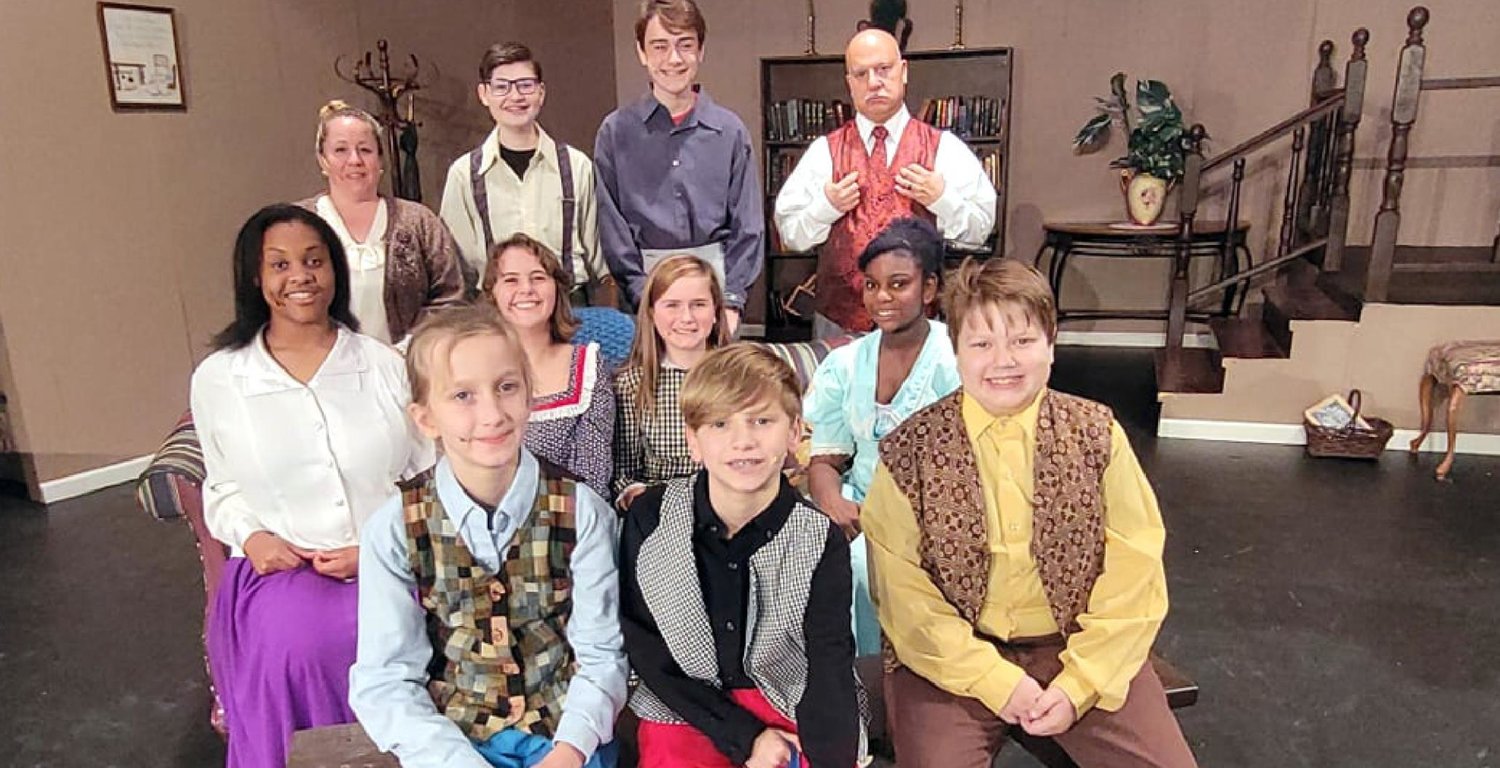Lexington Production of ‘Cheaper By the Dozen’ Emphasizes Valuing What You Have
Ara-Viktoria Mckinney-Bookman said she’s been at Village Square Theatre almost every day since August.
“I think I’ve only missed like three days of not being physically there for something …
This item is available in full to subscribers.
Subscribe to continue reading. Already a subscriber? Sign in
Get 50% of all subscriptions for a limited time. Subscribe today.
Please log in to continueNeed an account?
|
Lexington Production of ‘Cheaper By the Dozen’ Emphasizes Valuing What You Have
Ara-Viktoria Mckinney-Bookman said she’s been at Village Square Theatre almost every day since August.
“I think I’ve only missed like three days of not being physically there for something because of how tight the schedule is,” she told the Chronicle.
In addition to prepping her current production of “Cheaper By the Dozen,” her first in the director’s chair for the Lexington theater company, she appeared in both “Back to Broadway,” a May production that marked Village Square’s first return to live performance since the start of the COVID-19 pandemic, and October’s production of “Little Women.”
“Cheaper By the Dozen” finishes its run with shows each day from Dec. 16 to 19. Tickets range from $14 to $18. Village Square is at 105 Caughman Rd. Find more info at villagesquaretheatre.com.
Village Square’s packed schedule is a direct result of the pandemic, as the theater has crammed two postponed productions into the gaps in its fall lineup to play catchup.
“The turnaround is pretty much insane,” Mckinney-Bookman told the Chronicle. “At all times, somebody was in the theater rehearsing a current show, in the annex rehearsing the next show, and then auditioning for the one after that in between.”
But while it’s been a challenge to fit everything in, the director said the return from the pandemic has helped her stress the central theme of “Cheaper By the Dozen” to her cast and crew, particularly the child actors. The story centers on efficiency experts Frank Bunker Gilbreth and Lillian Moller Gilbreth and their 12 children, and how the family’s emphasis on maximizing productivity helps them overcome the father’s untimely death.
With Village Theatre getting back to the stage this fall after taking more than a year away from live performance, Mckinney-Bookman said it helped her drive home the story’s emphasis on valuing what you have.
“We’ve lost so many people. We’ve lost so much,” the director said of the pandemic. “Some of us gained time because we used our pandemic to start over and, you know, refresh our minds and change our lifestyles and do things. But a lot of us also lost time and we lost people we care about. [I] think that this will be a good show for people to kind of take a second and think about how precious time really is.”
This outlook framed her approach to the show.
“I wanted to really lean into how big of a character dad is,” Mckinney-Bookman explained, “but also how much the kids grow and develop.”
She added an additional challenge to achieving this as she pushed for another goal. In an effort to foster diversity and open up the show to children and others who hadn’t yet gotten a shot at acting on the Village Square stage, she opted to utilize two rotating casts, which she said is rare for the company’s productions.
“Some of the people involved have been doing different things at the theater like tech and lights and sound but never had an opportunity to be in a show before, or auditioned but never made a show before,” Mckinney-Bookman said.
Finding ways to overcome the difficulties in her first production as director seems to energize her. She spoke with giddy enthusiasm about the conversations she had with the children in the casts helping them understand the differences between now and the early 20th century, when the play is set.
“‘I might have that one line about the ice cream in that whole scene. But it’s got to be the best ice cream I’ve ever had,” Mckinney-Bookman said, illustrating one coaching moment. “Ice cream was a treat back then. Like it wasn’t available at the corner store like it is now.
“Just getting their mind focused on how it was back then, so that they could relate more to this group and build their characters has been a lot of work.”
Other items that may interest you







Comments
No comments on this item Please log in to comment by clicking here